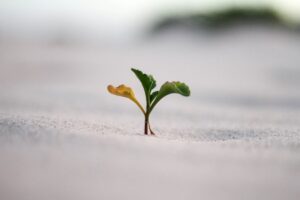Photo by Frames For Your Heart on Unsplash
Change is a fraction of life that’s inescapable and, at the same time, not to be feared. In fact, it’s something to be embraced. Embracing change for self-discovery ripples positively through our lives and forges the best versions of ourselves. As such, it cultivates our personal growth and evolves us into someone well-equipped and resilient to face life’s storms and intricacies.
Embracing change for self-discovery ties us to a transformative journey to self-discovery and finite possibilities that bring us to fruition.
Often, in this journey, we find ourselves lost in the midst, but in actuality, this is where we evolve and find our authentic selves. While embracing the changes in life can involve both triumphs and challenges, it is to bring forth the best of our abilities. We may seem lost, yet it’s just in translation, but in definition, in the process of being lost, we learn, realize, and discover. As an outcome, we are found.
A Literary Masterwork That Deep Dives
We find ourselves and further understand the deepest of our depths. Embracing change for self-discovery is a real thing that uplifts us to embrace the boundless potentials and successes that await us.
If you are intrigued to delve further into human nature wisdom for self-discovery, an insightful and captivating book by Chet Shupe is something valuable to look forward to. Rediscovering the Wisdom of Human Nature is highly recommended, especially for those who have always felt unmoored from life and have never been able to fathom its very core.
Am I lost? Or am I evolving?
Photo by Anuj Yadav on Unsplash
It is certain that through Chet Shupe’s masterwork, you will be able to grasp the complexity of humans and the grand scheme of life. To purchase your own copy, you may go to Amazon. Of course, if you are enticed to take a glimpse inside the book, you can visit the author’s website, Spiritual Freedom Press.
Change: Every Flip of it Comes with Hope and Possibility
The transformative power of self-discovery is trickled from embracing change. This transformation fosters a sense of hope and provides great possibilities.
Change can be complicated to understand and accept, but it is infused with hope and possibility. In moments of change, we must imbue every special occurrence with love, grace, and resilience.
Life accompanies change, and this journey is worth taking, knowing that there is hope and possibility along the way. In the face of adversity, light is present. As we venture through and navigate the complexities of change, we are guided forward in our path and emerge stronger and better.
Navigating Through Change: The Value of Maintaining a Mindset of Curiosity and Openness
Embracing change for self-discovery is a journey toward personal growth and success. It is crucial to maintain a mindset of curiosity and openness. That said, when we are curious, we become willing to embrace change as well as discovery. The learning opportunities that stem from uncertainty can nurture us.
When we approach change with openness, we are willing to challenge our existing beliefs and perspectives. Thus, in such moments like this, we expand our horizons and unfurl our untapped potential.
The potential hidden within us can be brought out when we embrace change with a dash of curiosity and openness.
Embracing Change for Self-Discovery: Change is Your Ally
In our ventures toward personal growth and success, change plays an important role. Although it may seem like change is the main antagonist in our lives, it is our ally – Change is your ally.
It is our constant companion that continues to shape us every day. We have become what we are today because of change. In this continuous process of change, learning and growing never cease to exist. Wherever we wind up, in the end, doesn’t deeply matter since the journey itself is what life is all about. After all, we are not merely living to finally end it all – we are living to experience it all.
Finally, suppose you want a more immersive read. In that case, read another article, particularly about the bitter truths about human nature. Of course, embracing change for self-discovery comes with its realities, and sometimes, they aren’t as agreeable as we want them to be. Life is not all about the joys and ups but experiencing it all – even the sorrows and downs.











